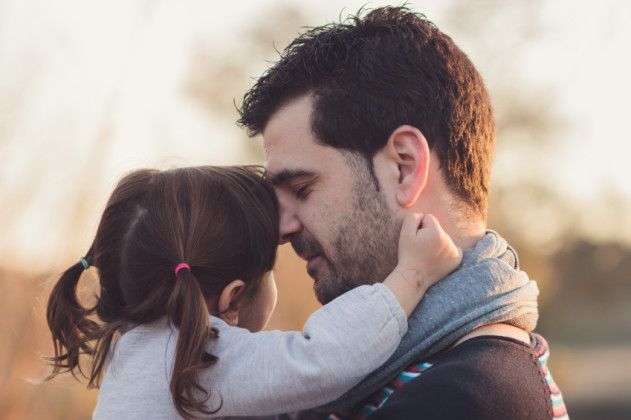Now that I have children of my own, I’m determined to do what I can to inoculate them from the toxic culture of body hatred that surrounds them.
When I was 16 years old, I weighed about as much as a 10-year-old. A 10-year-old girl, that is.
I was a boy with an eating disorder.
I’d always been one of the fat kids at school. In an all-boys school where academic achievement took a distant second place to athleticism, being fat was to be out of control. Controlling my weight was my way of controlling my world.
Initially, my rapid weight loss was a source of pride. One teacher even took a moment at the end of class to publicly praise my new look. I was walking on air. Finally, my body was commented upon in a positive way.
My family knew better. They could see that my restrictions had becomes obsessive and destructive. They implored me to eat. But anorexia doesn’t listen to reason. All they could do was care and support me. Their love and support is a large part of why I’m still alive.
The warmth of those first glowing affirmations didn’t last long. Winter set in and it would last for two years. That’s not just a figure of speech. There’s nothing quite like the numbing coldness of anorexia. I could stand next to an open fire for half an hour to the point of discomfit, walk away and be instantly cold.
I steered clear of doctors. The one time I visited a doctor after falling off my skateboard, he couldn’t conceal his look of horror. After stitching my chin back together, he suggested I hit the gym and put some meat on.
It wasn’t helpful advice, but I don’t blame the poor man. It was 25 years ago and eating disorders were not well understood. And I hardly fit the profile. While young women and girls are still the main sufferers of the disease, research suggests that around 25% of anorexics and bulimics are male.
Unlike other mental illnesses, anorexics are able to pass their illness off as healthy eating which, after all, is a national obsession. Exercising self control where food is concerned is often taken to be an expression of moral superiority.
No one jokes that they wish they could become schizoid or depressed. But I’ve heard people say they wish they could become anorexic—at least for a time. Or they’ll say they could “never become anorexic because they like food too much,” as if this is something you can control.
Even when anorexia is treated more seriously, it’s often viewed as if the anorexic has just taken things a bit far. If they could just dial things back a bit, it’d be fine. This is about as helpful as telling people suffering from clinical depression to look on the bright side of life.
The truth is, anorexia is all-consuming. Parts of your personality disappear or stop working. My sense of humour, for example, evaporated. I understood in an abstract way what things were intended to be funny, but I lost the capacity to spontaneously produce laughter. Instead, I had to mimic it.
Now that I have children of my own, I’m determined to do what I can to inoculate them from the toxic culture of body hatred that surrounds them.
We never talk about fat or body weight in our family—our own weight or anyone else’s. I encourage my kids to take pride in their bodies because of what they can do rather than what they look like. And most of all, I try to instill in them that a person’s worth or goodness isn’t determined by the size and shape of their body.
Am I cured? Mostly, but I’m not sure I will ever be fully cured. The pursuit of self-control that drove me to anorexia is part of my personality. I’m not immune to unrealistic advertising images and obsessive healthy eating messages.
My path to healing—and it’s only my way—was to accept the help of those around me to wrestle that part of my personality, that death drive, and channel it into more positive pursuits.
Christopher Scanlon teaches Journalism at La Trobe University.
This originally appeared on The Daily Life. Republished here with permission.
Related Links:

